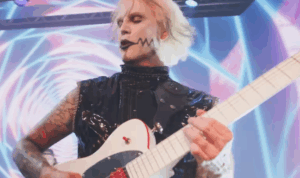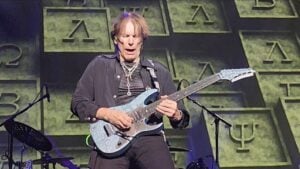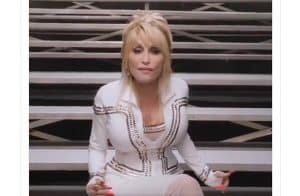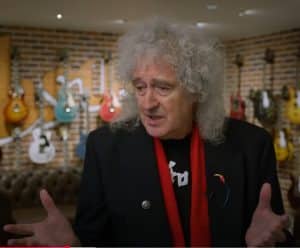The Most Infamous 1970s Concerts Because of Being So Bad
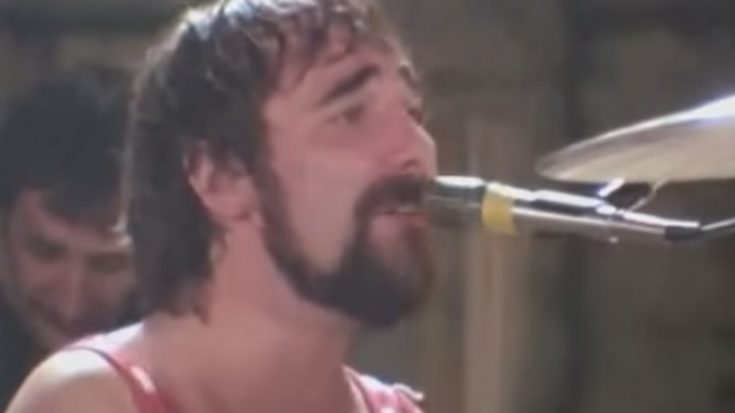
The Who cover The Beach Boys' "Barbara Ann" - Thedieguitomusic2 / YouTube
The 1970s earned their reputation not just for shaping modern rock and pop, but for setting a standard that artists still chase today. Stadiums were filled with fans who expected nothing less than magic from the decade’s biggest acts, and most nights, they got exactly that. With so many groundbreaking performers touring at once, the bar was high, and the appetite for unforgettable live shows seemed endless.
But even a golden era has its cracks. For every tour that became the stuff of legend, another left fans stunned for all the wrong reasons. Sometimes a single musician was out of sync; other times an entire band seemed to collapse under pressure, fatigue, or pure bad luck. People walked into venues expecting history and walked out wishing they had stayed home instead.
Looking back, these disastrous nights have become part of the lore of ’70s music, not because they erased anyone’s greatness, but because they remind us that even the most gifted performers can stumble. A rough concert doesn’t define a career, and the artists involved went on to deliver far better moments. Still, those chaotic evenings make for stories worth revisiting — the kind fans never quite forget, even if the bands wish they would.
Jim Morrison’s Final Doors Show Collapses Under His Own Chaos
Jim Morrison’s last concert with The Doors should have been another wild but memorable night, yet the Warehouse show in New Orleans unraveled almost from the moment he stepped on stage. His timing slipped, the lyrics refused to come to him, and the crowd quickly picked up on the fact that the frontman wasn’t in any shape to carry the night. His attempts to laugh it off only hung in the air, adding an uncomfortable edge to the room.
Things fell apart completely during Light My Fire. Morrison clung to his mic stand to keep himself steady, then slumped onto the drum riser as if he needed a timeout from his own performance. When it came time to return for the final verse, he stayed planted, ignoring the cue entirely. John Densmore tried nudging him back into motion, but the gentle kick had the opposite effect and lit the fuse.
In a sudden burst of anger, Morrison smashed the mic stand and stormed off, leaving his bandmates stunned. The Doors had weathered unpredictable nights before, but this one pushed everyone to their limit. Instead of being a bump in the road, the show became the last straw — the moment when the remaining members decided they couldn’t carry on like this anymore.
Chuck Berry’s Duet with Lennon Derails When Yoko Ono Cuts In
Chuck Berry’s 1972 appearance on The Mike Douglas Show alongside John Lennon had the makings of a historic moment. Two generations of rock royalty sharing a stage was enough to electrify a daytime television audience, and the chemistry between Berry and Lennon during the opening of “Memphis, Tennessee” showed genuine mutual respect. The performance had every chance to become one of those beloved clips fans revisit forever.
Then Yoko Ono entered the mix. Ono’s vocal style was always divisive, but the sudden, piercing wails she added mid-song hit Berry like a shockwave. His expression — equal parts disbelief and concern — spread across his face instantly, and that split-second reaction has since become one of rock’s most replayed memes. Behind the scenes, a sound engineer reacted just as quickly and dialed back Ono’s microphone before things went completely off the rails.
Berry never broke his professionalism, and Lennon tried steering the performance back on course, but the moment had already shifted into infamy. Instead of a seamless collaboration, the clip became a lesson in how quickly live music can swerve into unintended chaos. Ono didn’t ruin Berry’s legacy, of course — but that day, her contribution definitely didn’t help the song.
The Sex Pistols’ U.S. Tour Implodes in Front of a Packed Winterland Crowd
The Sex Pistols’ 1978 American tour was less a rock adventure and more a rolling crisis. Tensions inside the band were already high, with Sid Vicious spiraling, Johnny Rotten exhausted with the infighting, and manager Malcolm McLaren stirring controversy by dropping a punk band into the Bible Belt. Every stop felt like a confrontation waiting to happen, complete with angry locals and law enforcement keeping a close eye on them.
By the time the tour limped into San Francisco’s Winterland Ballroom, the band barely resembled a functioning unit. Steve Jones’ guitar gear malfunctioned repeatedly, strings snapped mid-song, and Sid wasn’t even plugged in for much of the show — yet still staggered around as if he was carrying the entire performance. Rotten’s voice strained and cracked, sounding as worn down as the rest of them looked.
The final blow came when Rotten stared out at the 5,000 attendees and asked, with equal parts bitterness and resignation, “Ever get the feeling you’ve been cheated?” It was less a punchline and more an admission that the band was done. He walked off, the others followed, and the Sex Pistols effectively ended right there on stage, in plain view of everyone who came hoping for punk’s big American moment.
Roger Waters Spits on a Fan as Pink Floyd’s Stadium Show Turns Toxic
Pink Floyd’s 1977 Montreal performance should have been triumphant — a massive stadium crowd, a band at its peak, and a setlist that could have carried a whole festival. Instead, a pocket of aggressive fans near the front derailed the entire night before it even began. They heckled the band relentlessly, and the heckling didn’t stop once the music started.
The real danger emerged when the same group began throwing firecrackers toward the stage. The explosions rattled the band and made an already tense evening feel hostile. Roger Waters eventually snapped, unleashing a furious tirade at the instigators. When a roadie hauled one of the offenders onto the stage, Waters leaned forward and spat directly in the fan’s face — a moment that instantly entered rock infamy.
The band kept playing, but the mood never recovered. Instead of the immersive, atmospheric show Pink Floyd was known for, the performance felt fractured and uneasy. The entire experience left such a mark on Waters that it helped inspire The Wall, a project built around alienation, bitterness, and the gulf between artist and audience — themes born in part from that miserable night in Montreal.
Eric Clapton’s Racist Outburst Turns a Concert into a Career-Long Stain
Eric Clapton’s name has long been associated with guitar mastery, and fans expected the usual brilliance when he took the stage in Birmingham in 1976. For a while, the night moved along as planned — strong playing, a relaxed crowd, and the familiar aura of a musician confident in his craft. Nobody expected the show to swerve from bluesy warmth into something deeply disturbing.
Without warning, Clapton launched into a drunken, racist rant aimed at immigrants in the U.K. It wasn’t a stray comment or an off-color attempt at humor; it built into a full tirade packed with slurs and nationalist rhetoric. Because no recording of the night exists, the details survive mostly through eyewitness accounts, but those accounts have remained consistent and damning over the decades.
The reaction inside the venue shifted from disbelief to horrified murmuring as people realized he meant every word. Fans who had come for music suddenly found themselves witnessing a moment that would shadow Clapton’s reputation for the rest of his career. He never denied the remarks, and that single night remains one of the harshest examples of how a performance can go wrong for reasons that have nothing to do with missed notes.
Van Morrison Walks Off After Only Four Songs, Leaving New Yorkers Confused
Van Morrison’s career is filled with moments of brilliance, but he has also built a reputation for unpredictability on stage. Even with decades of experience behind him, the nerves never fully disappeared, and he sometimes needed a push — literally — to get out in front of an audience. His 1976 appearance at The Band’s farewell concert at Winterland nearly didn’t happen until his manager physically nudged him into the spotlight, where he ultimately delivered a strong performance.
Three years later, that sense of unease returned in far less flattering fashion. During a New York show in September 1979, Morrison barely made it through four songs before suddenly leaving the stage. The audience had no warning and no explanation; one moment he was performing, the next he was gone, leaving a room full of baffled fans wondering if he planned to return.
He never did. For longtime followers, the walk-off wasn’t entirely shocking — Morrison was known for swinging between transcendent shows and evenings where frustration or nerves got the better of him. Unfortunately for the New Yorkers in attendance, they caught him on one of his most infamous bad nights, watching a concert unravel before it had the chance to find its rhythm.
Grace Slick’s Drunken Nazi Salutes Derail Jefferson Starship’s Germany Tour
Jefferson Starship entered the late ’70s with a loyal fan base and strong momentum, but their 1978 Germany tour hit a disastrous snag. The band had already canceled their Wiesbaden show due to Grace Slick falling ill, a setback that probably should have prompted a pause. Instead, they moved forward to the next stop in Hamburg — a decision that would haunt them.
Before hitting the stage, Slick drank heavily, far more than any performer could safely handle. When the lights came up, she unleashed a barrage of insults at the German audience, invoking World War II imagery, calling people Nazis, and even performing Nazi salutes. The show was filmed by Rockpalast, a major German music program, but the footage never aired because the spectacle was simply too offensive to broadcast.
The crowd didn’t react with anger so much as morbid curiosity. Many walked out, then wandered back in, unsure whether they were witnessing a meltdown or a provocation. Slick later admitted that the incident stemmed from “dumb, drunken decisions,” and the fallout was severe enough that she left the band shortly afterward. The Hamburg concert remains one of the most notorious nights in Jefferson Starship’s history.
Keith Moon Passes Out Twice as The Who Scramble to Finish Their Own Show
The Who’s 1973 stop at the San Francisco Cow Palace was expected to be a powerful kickoff to their American tour, but drummer Keith Moon arrived in no condition to deliver. He had taken some form of tranquilizer beforehand — believed by many to be elephant tranquilizer — and by the time the band launched into their set, Moon’s playing was erratic and unstable.
Midway through the concert, the inevitable happened. Moon collapsed backward in the middle of a song, unconscious, and had to be carried offstage. After a cortisone shot backstage, he insisted he was ready to get back behind the kit, but the same thing happened again: another blackout, another collapse, another trip backstage while the rest of the band tried to decide what to do next.
With Moon incapacitated, The Who turned desperately to the crowd, asking if anyone out there could play drums. Incredibly, a fan named Scott Halpin volunteered and was brought onstage to help finish the show. For Halpin, it became a once-in-a-lifetime dream; for the band, it was a complete disaster they spent the rest of their careers laughing about — and also trying to forget.
Peter Criss Forgets the Lyrics to His Own Hit as KISS Watch in Disbelief
KISS built their empire on spectacle and precision — fire, makeup, riffs, and theatrics all working as one. Part of that formula included letting members sing the songs they wrote, which is how drummer Peter Criss became the voice of the hit ballad “Beth.” Fans cherished the moment during shows when Criss stepped forward to perform it live, away from the drums and directly in the spotlight.
But during a 1979 performance, that spotlight exposed something far less magical. Criss, reportedly drinking heavily before stepping onstage, forgot the words to the very song he had written. Video footage of the moment still circulates, capturing an awkward, stumbling performance as the rest of the band kept playing, unsure whether to help him recover or simply wait it out.
It became one of the defining low points of Criss’ time with KISS. A year later, he was out of the band — although accounts differ over whether he quit or was fired. He would eventually return and leave again, but that 1979 mishap remains one of the most painful examples of how even a signature song can fall apart in front of thousands.
Even the Isle of Wight Festival’s Legendary Lineup Couldn’t Save Its Worst Moments
The 1970 Isle of Wight Festival had the kind of lineup that should have guaranteed a legendary, career-defining weekend. With artists like Jimi Hendrix, Joni Mitchell, Sly and the Family Stone, the Doors, and the Who all on the bill, the event looked like the British counterpart to Woodstock. More than 600,000 people flooded the island expecting a once-in-a-lifetime experience.
What they got instead was a swirl of technical issues, crowd problems, and frustrated performers. Kris Kristofferson was booed offstage when the audience misheard “Blame It on the Stones” as an attack on the Rolling Stones — not knowing the song’s real meaning because the PA system garbled the lyrics. Joni Mitchell struggled with hecklers and was even interrupted mid-set by a protester who marched onto the stage.
Other artists suffered worse. Sly and the Family Stone abandoned their performance after a flying can struck Freddie Stone, and the Doors’ set fell flat due to the uneasy crowd atmosphere. Even with monumental talent and historic performances sprinkled throughout, the festival often felt like a battle between artists and the massive, unpredictable audience. It should have been perfect — but instead, it became a warning about what happens when a great lineup meets terrible conditions.




